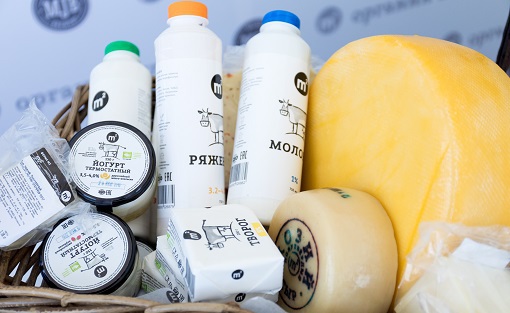Organic certification
With care for nature and your health - our lands and products have Russian and European ORGANIC certificates. What does this mean and why is organic certification so important?


Information about certificates is available on the website of the Ministry of Agriculture:

The principles apply to all stages of production, processing and distribution of food and goods in organic agriculture.
Following them helps to obtain high quality organic products, which have a positive impact on human health and well-being. The principles also guarantee a careful attitude to farming and care for the environment.
In order to obtain organic certification, the farm must comply with regulations in the field of agriculture, animal husbandry and food production.
1.Look for the official ecolabel on the package:
This label means that the company has an organic certificate. If you see other signs, these are indicators of greenwashing. You can learn more about what greenwashing is and how consumers are cheated in our field journal.
2.Check for a certificate. There are two ways to do this:
Request an organic certificate from the manufacturer.
Request the document from the manufacturer directly. After receiving the document: check the validity period of the certificate, as well as the consistency of the name of the tested product and the name of the manufacturer's company.
Check the availability of the certificate yourself.
We will show you how to do it using the example of the European bio-certificate (EU Organic Bio). Find the Eurolist sign on the package - underneath there should be an alphanumeric code. Type the code into the search engine and figure out the control body that certified the product. In the case of M2 products it is the German agency KIWA.
Next - go to the website of the certifying organization and find (or request) a certificate for the manufacturer's company. In the certificate, also check its validity period, the correspondence of the name of the examined product and the name of the manufacturer's company.
In 1972, the International Federation of Organic Agriculture Movement (IFOAM) was founded with the goal of spreading organic farming methods, and the first standards were developed in 1980.
In 2007, the European Consul approved a regulation number 834/2007, which outlined the principles, objectives and rules of organic production and defined how organic products must be labeled.
The existing logo was adopted on a competitive basis in 2010. Obtaining this certificate is mandatory for all suppliers wishing to sell their products in the EU as organic and voluntary for those who sell in other markets.
In Russia, the first organic standard was created back in 2015, it was replaced in 2016 by the new GOST 33980-2016. The Federal Law on Organic Products comes into force on January 1, 2020